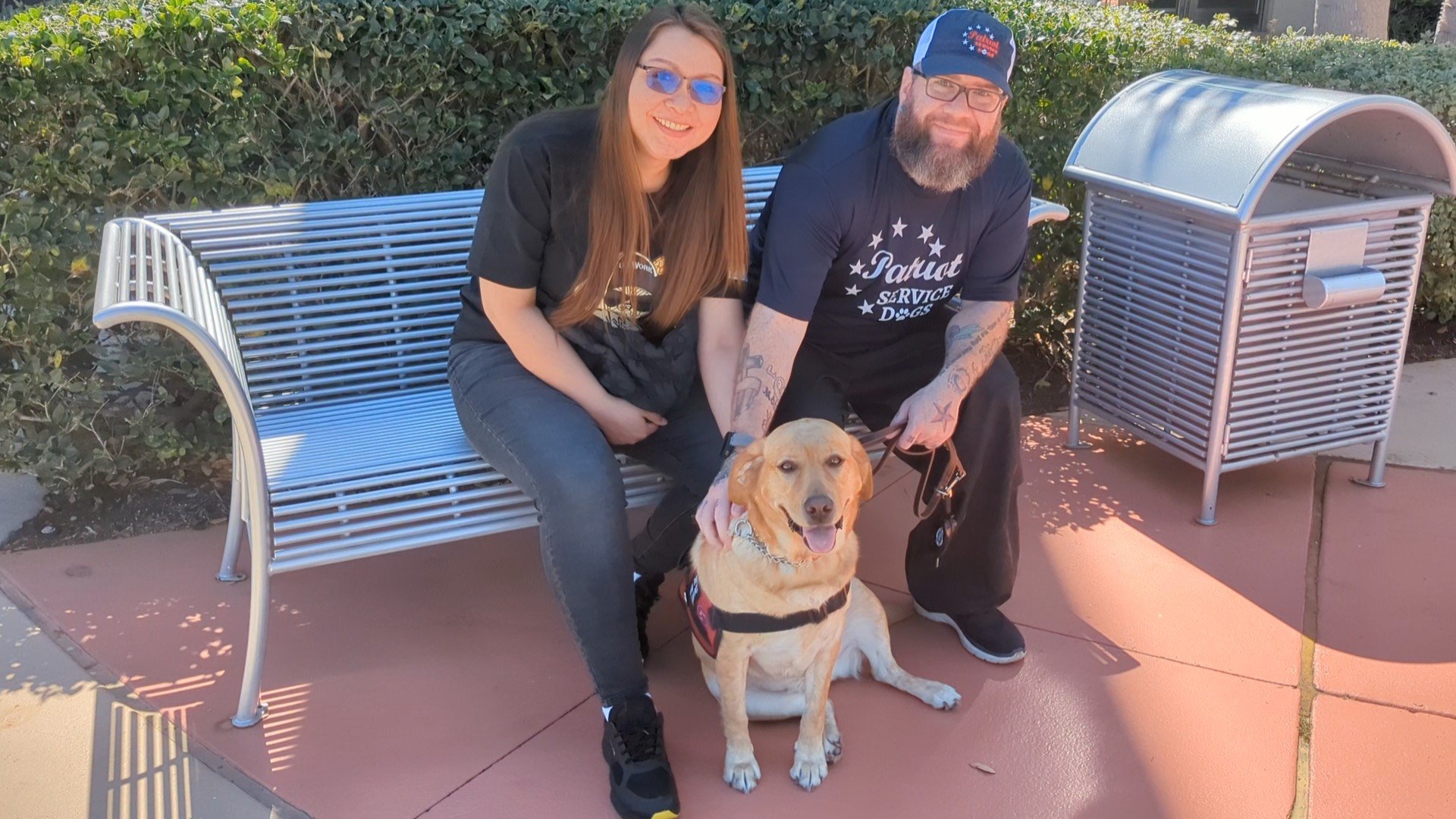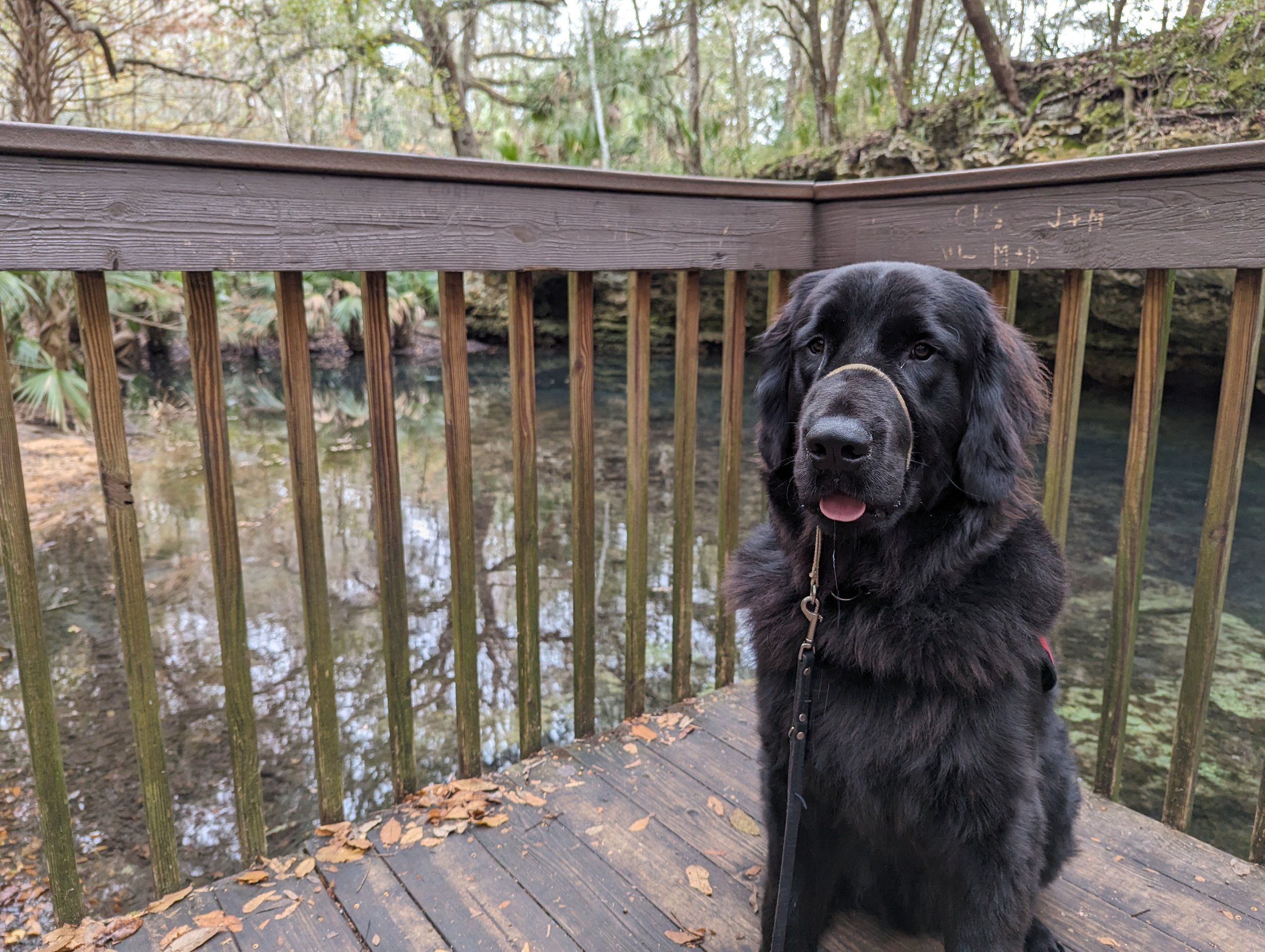
A service dog is not a magic pill. It can be a life-saving tool, but tools only work properly if the user knows how to operate and maintain them. A service dog takes work.
Veteran Training: What PSD expects of veterans
-

Pre-Training
If Patriot Service Dogs believes we have a good candidate dog for an applicant, PSD will send that veteran a video class and a PDF training manual. It is the responsibility of the veteran to study and learn our rules, standard of care for our dogs, and commands. It is important veterans arrive to Warrior Week speaking the dog’s language, so the bond can begin to build and training can hit the ground running.
Our dogs have trained their entire lives to be matched with a veteran, so we expect veterans to also put in the effort to be ready for the dog.
-

Warrior Week (Advanced Training)
Warrior Week is PSD’s name for advanced training. It takes different forms based on the individual veteran and dog. Sometimes we train in small groups in PSD’s homebase in Ocala, and sometimes we train individually closer to the veteran’s location. Warrior Week can last 5-10 days, depending on the group and situation. This training is for veterans to learn to “use” their dog. Veterans must come ready and open to learning.
If teams are ready, they complete the ADI Public Access Test and become an official veteran/service dog team at the end of training.
Veterans must pay for their own accommodation in Ocala, transportation to training, and for meals outside of training.
-

Maintaining Training
Training never ends! Every team can always work on perfecting something. PSD expects veterans to maintain the dog’s service dog training and rules. So even after graduating, PSD dogs must continue to follow our rules, like no eating people food, no jumping on people, no rough play with other dogs, etc.
There is a difference between a well-trained pet and a service dog. Maintaining a high level of training and expectations is how veteran/service dog teams keep their working relationship. But it is up to each veteran graduate to keep it up, PSD can’t do it for them.
Ongoing Veteran Support:
After graduation, PSD remains close to our teams. We are lucky that many teams remain a part of our community, attending PSD events, helping with new projects, and sharing their success stories.
The Ongoing Team Support Program is one of the ways Patriot Service Dogs maintains the quality of our program and our commitment to the dogs. Teams are required to recertify every year. During this recertification, we check in on how the team is maintaining their training and the well-being of the dog. For example, if a team has become lax or rusty on certain elements of service dog behavior, a PSD trainer will create a training plan for the veteran to correct the issue. If a dog has become overweight, the PSD Medical Director will create a weight loss plan. Dogs graduate from training with PSD, but we consider it our responsibility to make sure they are happy, healthy, and working well with their veteran for the rest of their lives.
Check ins and Recertification Tests:
PSD completes an in-person check in with new teams 3 months after they pass their Public Access Test.
6 months after the Public Access Test, PSD does a phone or video conference.
1 year after the Public Access Test, PSD completes an in-person check in and recertification test.
After the first year, teams must recertify once every year.
Veterans must make themselves available for these check ins.
Health Maintenance:
Once a veteran/service dog team graduates, the veteran is responsible for maintaining the dog’s health.
Veterans must regularly take the dog to the veterinarian for check-ups and provide PSD with yearly reports while the dog is working.
Veterans must keep the dog on a flea/tick/heartworm prevention program.
Veterans must maintain a healthy weight for the dog. All veterans sign a “Weight Contract” during advanced training.
Veterans must cover emergency care. PSD cannot help with emergency costs.
Veterans must consult with PSD before retiring their service dog. After retirement, PSD expects the veteran to continue to care for the dog for the rest of its life. If requested, veterans can discuss a “successor dog” with the PSD team.
Financial Assistance from the Dept. of Veterans Affairs:
Patriot Service Dogs has no connection to the VA and does not receive any VA funding.
While PSD is a member of Assistance Dogs International, making our dogs eligible for financial assistance from the Department of Veteran’s Affairs, PSD cannot help veterans get approved for the assistance. The only role PSD plays in that process is maintaining ADI standards and writing a letter stating that the team is trained by our organization. Through word of mouth, we have heard that many veteran/service dog teams have reported difficulties and delays getting the VA financial assistance. PSD does not recommend counting on this funding to maintain the health of the dog.

